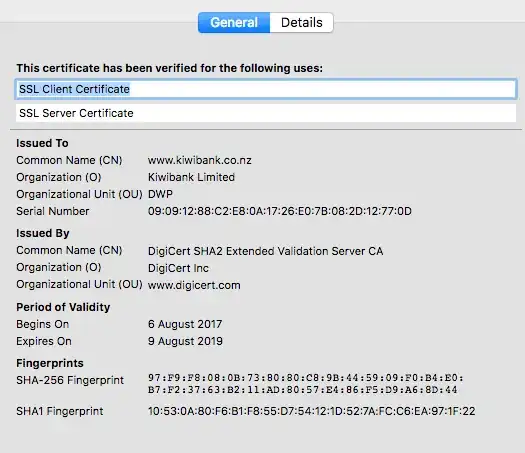UPDATE This question is illogical. Https does not authenticate the IP address I was wrong.
I guess my question (should have been) how can I verify the server's IP from the cert? I thought that was an important part of it.
;; ANSWER SECTION:
www.kiwibank.co.nz. 60 IN CNAME static.kbprod.cloud.
static.kbprod.cloud. 60 IN A 54.192.135.164
static.kbprod.cloud. 60 IN A 54.192.135.228
static.kbprod.cloud. 60 IN A 54.192.135.182
static.kbprod.cloud. 60 IN A 54.192.135.28
static.kbprod.cloud. 60 IN A 54.192.135.17
static.kbprod.cloud. 60 IN A 54.192.135.117
static.kbprod.cloud. 60 IN A 54.192.135.110
static.kbprod.cloud. 60 IN A 54.192.135.169
